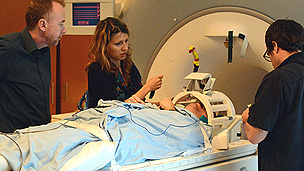
How easy it can sometimes be nowadays, to listen to a locked-in patient’s silent answers to questions! (If the doctor can be bothered, that is, because he cares what his patient thinks and is feeling.)
Star post
Dying for a drink isn’t a pleasant way for anyone to be forced to spend Christmas, but it is the fate chosen by his British NHS doctors, his wife, and the British judiciary, for one unfortunate Polish fellow, despite the objections of the Polish government and his Polish mother and two Polish sisters. This patient has been prescribed death by thirst. The slow taking of his life began yesterday, a Christmas present for him which he might well have said was unwanted, if only he had been asked.
To describe dying of thirst – not a nice way to go by all accounts (even when it’s not Christmas) – as “euthanasia”, is something of a euphemism. But it appears to be the best treatment the British NHS can offer this unfortunate patient, or so they told the courts. I am suspicious that the NHS didn’t try all that hard to discover the patient’s own preferences as to how and when he’d like to die. As you will learn, if you continue reading, there was quite a lot the NHS could have tried, if they’d wanted to find out what the patient thought and how he felt about his situation.
The patient’s name has become something of an official secret, thanks to our notoriously secretive British ways. I’ve been ready for the past 50 years to be sent to prison one day for blurting out the truth against the wishes of the state, but it won’t be this time. I have to call the patient “RS” like the courts have been doing because I don’t know his real name myself yet.
RS’s plight is reported here:
UK hospital removes food, water from unconscious Polish Catholic euthanasia victim on Christmas Eve
The most recent court judgment, which left RS detained in an NHS hospital at the say-so of the British state, for the official purposes of ensuring his death there, preventing his transportation to Poland for less lethal medical treatment there as requested by the Polish ambassador, his mother, and his sisters, is here:
Click to access JB-v-University-Hospital-Plymouth-NHS-Trust-judgment.pdf
What does the patient think of the plan to dehydrate him to death?
Has anybody even bothered to try to find out whether poor RS is comfortable, as Scott Routley was asked? (See: How science found a way to help coma patients communicate in The Guardian.) Has anybody asked RS whether he consents to spend his last Christmas dying of thirst? Shouldn’t the doctors ask RS these important questions of locked-in patients, taking the trouble first to hook them up to EEG, MEG or fMRI in order to ascertain their answers to the questions, as they did in the case of Mr Routley? Should RS not be granted such an accommodation that his present disabilities require, given his present locked-in state of consciousness? The procedure (depicted, in the case of Scott Routley) doesn’t look to be too burdensome, even if the technology used is a bit on the expensive side.
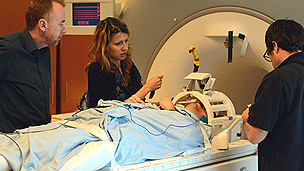
Who are we killing?
One of those I am following on Twitter, Angela Ronson, is still officially categorised as “vegetative”. It is frightening to realise that Angela would not still be alive and well today, blogging as The Thoughtful Vegetable, if she had been treated as callously as RS is being treated now.
I discovered Angela’s delightful and interesting blog because she responded to my blog post a few years ago, Talk to me, don’t just starve me to death!, in which I argued that patients like Scott Routley, Angela Ronson herself (as it happened) and (now) RS are entitled to be consulted directly about decisions to do with their treatment, using where necessary state-of-the-art techniques of the inference of thought from biological data, such as EEG and MEG (as documented here), or fMRI (as used with Scott Routley). It is shameful that this is not routine, largely because, I suggest, so much of the best research remains classified, leading NHS practitioners to think of what little published research there is as still in an early, experimental stage, every bit as unsuitable for compassionate application as (say) an unlicensed vaccine.
RS’s Roman Catholicism, unfortunately the primary focus of litigation so far, strikes me as nowhere near as important an issue in his life-or-death court case as the entitlement of anybody in his situation for the best possible efforts to be made to determine his wishes, accommodating his disabilities of communication, by the application of algorithmic thought inference from the patient’s physiological data.
________________________________________
On a personal note, I witnessed EEG in my teens and asked if it could be used to read thoughts. At that time, it had not yet been discovered that human verbal thinking could be inferred from EEG data. I had a EEG myself at the main Plymouth hospital during 2010. The technician who administered my EEG was unaware of the military research of Lawrence Pinneo, published in 1974, into the inference of verbal thinking from EEG and MEG data, Feasibility Study for Design of a Biocybernetic Communication System. I drew it to his attention. He had had no knowledge of the capability to read thought from EEG data. (I, on the other hand, was the first to publish Pinneo’s work online, about sixteen years ago, although it is now published openly by the US military and many others.)
For twenty years, my own interest in thought inference from brain data has been because of ethical concerns about consent to having one’s thought read and the behavioural influence applications that thought inference capabilities enable. I gave a presentation that touched on this at the 5th European Symposium on Non-Lethal Weapons, entitled Ethical and societal implications of capacity for privacy-invasive remote interrogation and behavioural influence applications. It would be ironic if the work I and others have done on this topic, most notably the literature review papers of John McMurtrey, became more conspicuous because of the unethical withholding, from patients such as RS, of thought inference when it is needed, as a matter of life and death, rather than the unethical application of thought inference to non-consenting subjects, which has interrogation and behavioural influence applications.

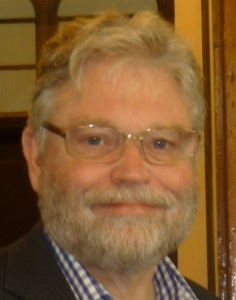
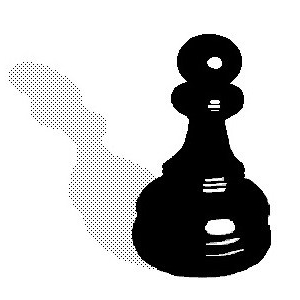 Cet animal est très méchant. Quand on l’attaque, il se défend.
Cet animal est très méchant. Quand on l’attaque, il se défend.

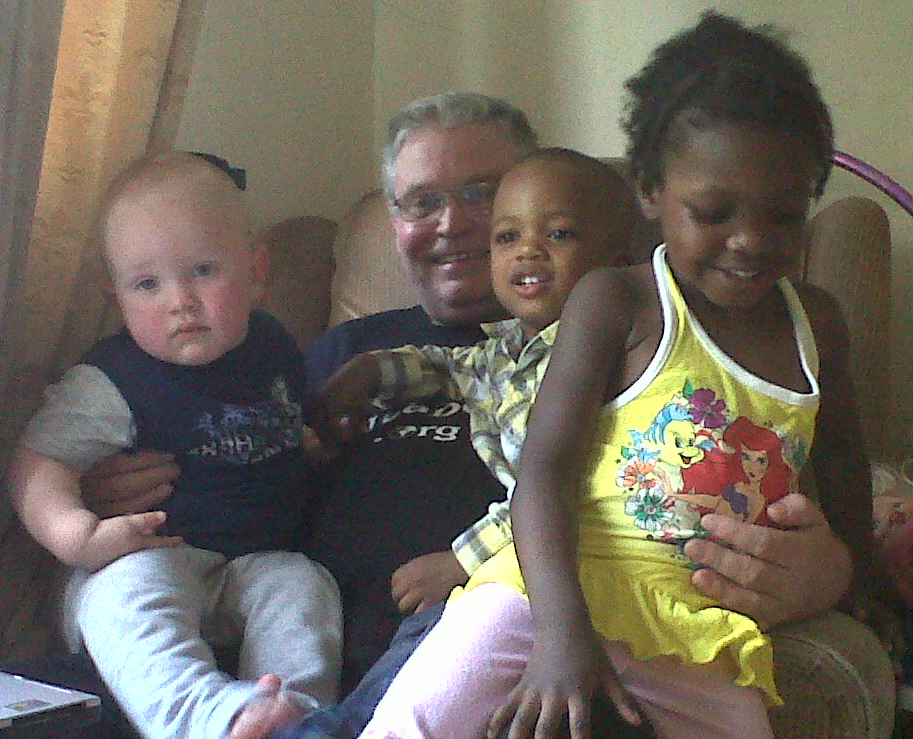


Thanks John. I hope you are doing okay. I just had my 80th Birthday, so surprised that I am still here. Merry Christmas and Happy New Year. I have posted this on my facebook wall. I am trying to retire, but a hard thing to do for me. Bev.
Hi John. This is so typical of the court of ‘so-called’ protection
The link you posted is interesting, and somewhat ironic bearing in mind that many children of Christian families are informed as a rather vulgar method of encouraging self-monitoring of behaviour and thoughts that Jesus is watching them and knows what they are thinking!
Stay safe, John, and all the best for the New Year.
Indeed. The same comparison as you have made had occurred to me.
If you look at ethical monotheism and the golden rule as merely a thought-experiment for finding out what’s right and wrong, a philosophical principle, a twin, fundamental ethical principle – be devoted first to a hypothetical “big brother” whom you imagine watching you and even monitoring one’s thoughts and, secondly to other humans (one’s “neighbours”) equally to oneself – it is hard to see how this is so objectionable to many atheists, or inferior to teaching the much more complicated atheistic alternative thought experiment of “wearing the veil of ignorance in the original position”. A child or even an adult can learn the idea that a good but scarey God is watching them (or that they should try to imagine this) better than learning how to wear the veil of ignorance whilst in the original position, in order to find out what feels right and what feels wrong.
Why don’t you start a discussion around this case and your comment on it, and my reply, on your own blog? I am about to telephone the Duty Manager at Derriford Hospital. If and when RS is back on hydration, or has died, I’d be interested in joining a more general ongoing discussion with you and your atheist friends, god-fearing or otherwise.
I am not au fait with the either the politics of the situation or the background, which is why I did not comment in it, and thus, any comment from me would likely be meaningless and ignorant.
I consider teaching kids that Jesus is watching them is not only without any evidence but in certain instances tantamount to child abuse.
I cannot see how anyone could find this defensible.
Furthermore, I’m interested in this phrase you used as I have never heard it before and am somewhat bemused as to its meaning.
”the much more complicated atheistic alternative thought experiment of “wearing the veil of ignorance in the original position”
Could you explain what this means?
The phrase “wearing the veil of ignorance in the original position” comes from the source documented here:
https://en.wikipedia.org/wiki/Original_position#:~:text=The%20original%20position%20(OP)%2C,free%2C%20equal%20and%20moral%20people.&text=The%20original%20position%20figures%20prominently,book%2C%20A%20Theory%20of%20Justice.
I think you underestimate yourself, in predicting that any comment on your part on the ethical question (which I hope to make into a political question) would necessarily be “meaningless and ignorant”. The ethical question I am raising is whether accommodations should be made for disabled patients whose disability is that they are comatose or “locked-in”, when diagnosing their mental capacity (or lack o0f it) to make decisions of life and death for themselves, instead of having those decisions made for them by relatives, health professionals and/or the courts. The accommodation I feel is needed in every case when killing a comatose patient by neglect is considered, is best efforts (rather than merely standard efforts) to enable the patients to communicate. The case cited of Scott Routley in the Guardian article written by Adrian Owen, who is the neurologist who treated Mr Routley, is an example of the use of extraordinary efforts having been used successfully, to enable one comatose patient to communicate, rather than the mere standard efforts that would be adequate for a non-comatose patient, but which would have been inadequate for Mr Routley.
I have been in touch over Christmas with the hospital where RS is dying (or already dead). I have prevailed upon a staff nurse, the hospital chaplaincy and the duty manager, to procure that a neurologist considers my blog post and the information it introduces, with a view to perhaps halting the terminal care of RS (or rather, his deliberate, terminal neglect), whilst I await a response from Professor Owen, whom I emailed on Boxing Day, via his PA, asking him whether the techniques he pioneered might usefully be applied in the case of RS.
This is an ethical question that could affect anybody. You or I could suffer brain damage tomorrow and find ourselves awake but unable to communicate. We might be unable to swallow, or to move a finger or an eye in response to what was said to us. We might overhear and understand conversations about ourselves, in which the removal of nutrition and hydration was considered, with the intention of causing our early deaths. In that situation, I say that extraordinary efforts should always be made, to ascertain whether such patients are awake or asleep and what their wishes are.
How about you research the case a bit more before you start posting your opinions about it and untruthful informations?!!
His father has died years ago and how do you know for sure what nationality is his wife???There is much more to the story than you know.
How about you research the case a bit more before you start posting your opinions about it and untruthful informations?!!
His father has died years ago and how do you know for sure what nationality is his wife???There is much more to the story than you know.
I have amended the sentence that mentioned RS’s father and suggested that his wife is British. My main point – in fact my only point – doesn’t depend upon the factual accuracy that (I hope) we now have. Thank you for drawing my attention to the inaccuracy.
I am not able to do any “research”, because (quite rightly) the hospital won’t give me any information.
Did you read the account of how Prof Adrian Owen enabled Scott Routley to communicate? Do you agree with me that such accommodation for disabilities of communication should be made for all apparently comatose patients, including RS? Patients, that is, who are unable to respond to stimuli? Should doctors not always ascertain definitely their consciousness or lack of it, along with their preferences if they can be enabled to express any?
Giving RS and other patients in similar circumstances the same accommodations as were made for Mr Routley would sometimes remove the need for relatives to guess what the patients “would want” and for the courts to rule as to their “best interests”. Why shouldn’t every comatose patient enjoy the extraordinary efforts to enable him to communicate that revealed that Scott Routley was awake, aware and comfortable, despite having been “vegetative” for twelve years?
Did you visit Angela Ronson’s blog or Twitter account, or read her comments on my earlier blog post, “Talk to me, don’t just starve me to death?”
I know that there is more to this story than I know. Of course there is. But I also know that sometimes people who appear to be unconscious are awake, but they are unable to communicate without accommodations of their communication disabilities such as those made for Scott Routley. I do not know whether such accommodations as were made for Scott Routley were also made for RS. I suspect not. If such accommodations weren’t made in RS’s case, then I shall be distressed to learn this, if and when my persistence gets that information made public. As it is, I have lost trust in Derriford Hospital. If they’re willing to put to death a patient with whom best efforts haven’t been made to communicate, then one day I could be in Derriford Hospital myself, dying of thirst, or one of my family members could be.
Yes I have read the articles mentioned by you.
I actually know the case of RS and I know what treatment he had received, trust me when I say – doctors in Deriford hospital went above and beyond of what was expected of them in this case
“trust me when I say – doctors in Derriford hospital went above and beyond of what was expected of them in this case”
It’s not that I don’t trust you. (I don’t trust you, but that’s because I have no idea who you are.) It’s this: The only information I had to go on, until you corrected my mistakes in details that weren’t important to my argument, is what is in the public domain. I’ve linked to that information in my blog post.
I know that sometimes doctors would be willing to give expert evidence in court that patients are unconscious and will never regain consciousness when this isn’t true. I know that some patients at risk of being deprived of artificial hydration and nutrition could perhaps be enabled to communicate, in the way that Scot Routley was. Eight or nine years have passed since Professor Owen discovered that Scott Routley was conscious and that he was (Mr Routley said) “comfortable”, when at last he was asked and enabled to answer. In the absence of any evidence that Derriford (a hospital I have been in myself) is behaving any differently now from the way in which hospitals used to behave before the experiment with Scott Routley, why would I, a Derriford patient myself, not be concerned about this?
The only way to allay the worries of the public in a situation like this is by openness. It is like straining out a gnat after swallowing a camel, for the hospital to make a pedantic song and dance about respecting the rights to privacy and confidentiality of a patient whose rights to life and to give informed consent it has given the impression it doesn’t consider important.
How does the term, ‘veil of ignorance’, have anything to do with atheism, which is simply the absence of belief in gods?
And it certainly doesn’t offer a relevant answer as to why some children from Christian families are raised to believe their actions and thoughts are being monitored by a character called Jesus/Yahweh.
As to the subject of your post: I am not au fait with all the details surrounding the person so commenting on any aspect would be foolhardy at best.
Did you click on the link in my previous reply? The phrase “veil of ignorance” is explained there, and elsewhere, better than I could explain its meaning, when the phrase is used as John Rawls meant it, who coined the phrase in (or before) 1971.
Yes, of course I did.
Once again, what has this got to do with atheism?
If you don’t really know/understand what atheism is and have provided a link that, in hindsight you realise has no bearing on atheism then please, at least admit you may have erred.
And how does this have any bearing on the revolting practice of terrorizing certain children with the threat that the character Jesus/God is watching/monitoring their actions and thoughts?
Rather than once again being forced to indulge in a lengthy dance of semantics and obfuscation, I would truly like you offer straightforward answers for a change , John,
I regret now describing Rawls’ alternative thought experiment (alternative to ethical monotheism, that is) as “atheistic”. I realise now that I should have said “non-theistic” (because it isn’t theistic). Since you have made it clear that you don’t wish to comment on the plight of RS, the patient whose very life is the subject of this blog post, you might consider venting your frustration by posting another post on your own blog, criticising me personally for not publishing any more of your off-topic comments on my (moderated) blog.
Once again, as I am not party to the full details of the blog post it would be foolhardy for me to comment on it, especially as you only seemed to want a response so as to draw me into some sort of debate on ethics and morals.
And, for the record, there is nothing ethical about monotheism.
Happy New Year, John, and may you see all your untiring efforts for the right bear much fruit in 2021!
I address in https://thoughtfulveg.blogspot.com/2021/01/im-not-dying-for-dtink.html
Thank you for the blog post in reply to this one and for the link to it here. Happy birthday for today. I hope you got my message on Facebook Messenger.
Pingback: Archie Battersbee’s wishes and feelings | JohnAllman.UK